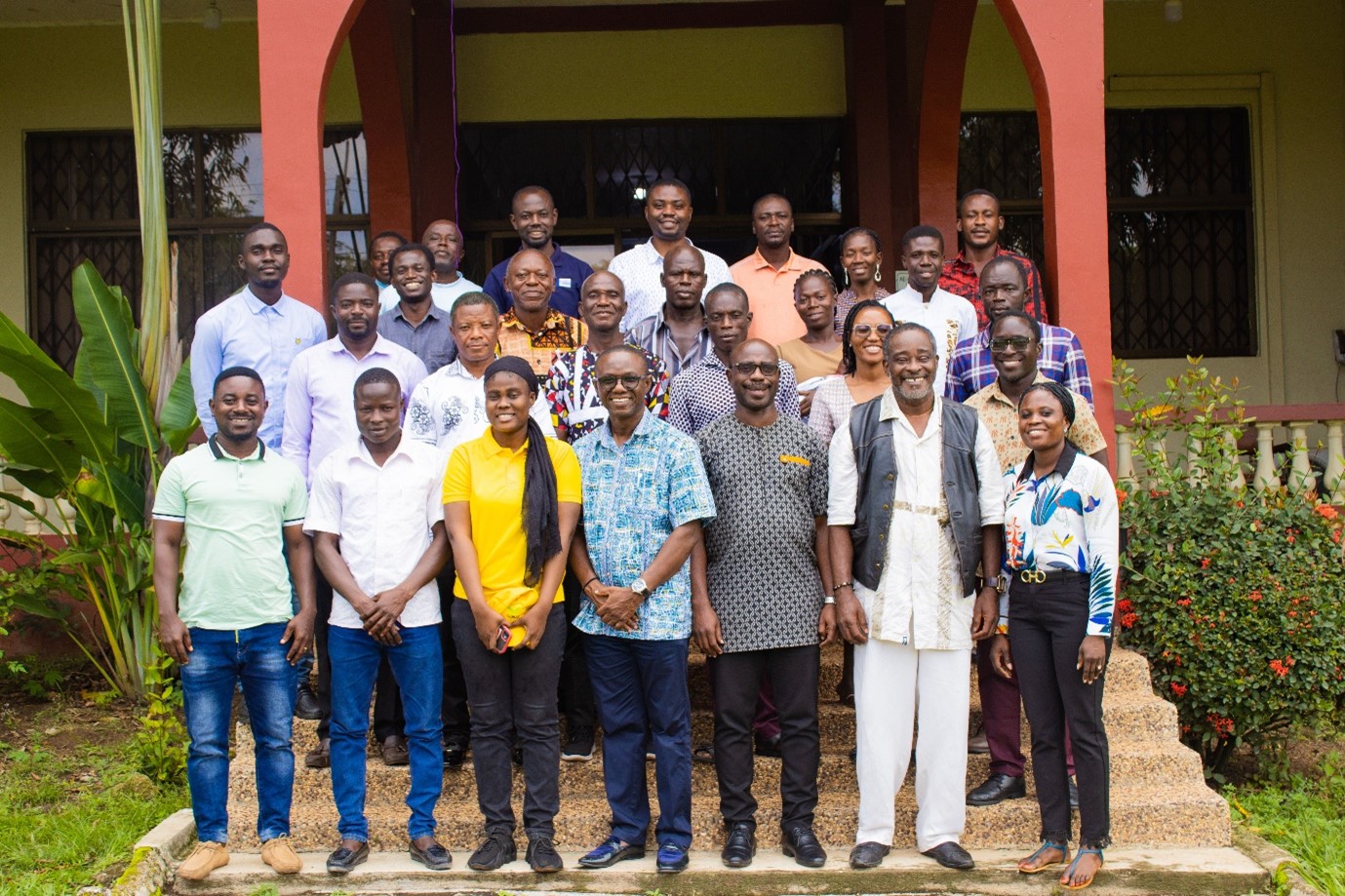CSIR-CRI RICOWAS WORKSHOP EQUIPS STAKEHOLDERS WITH GOOD AGRICULTURAL PRACTICES FOR RICE PRODUCTION
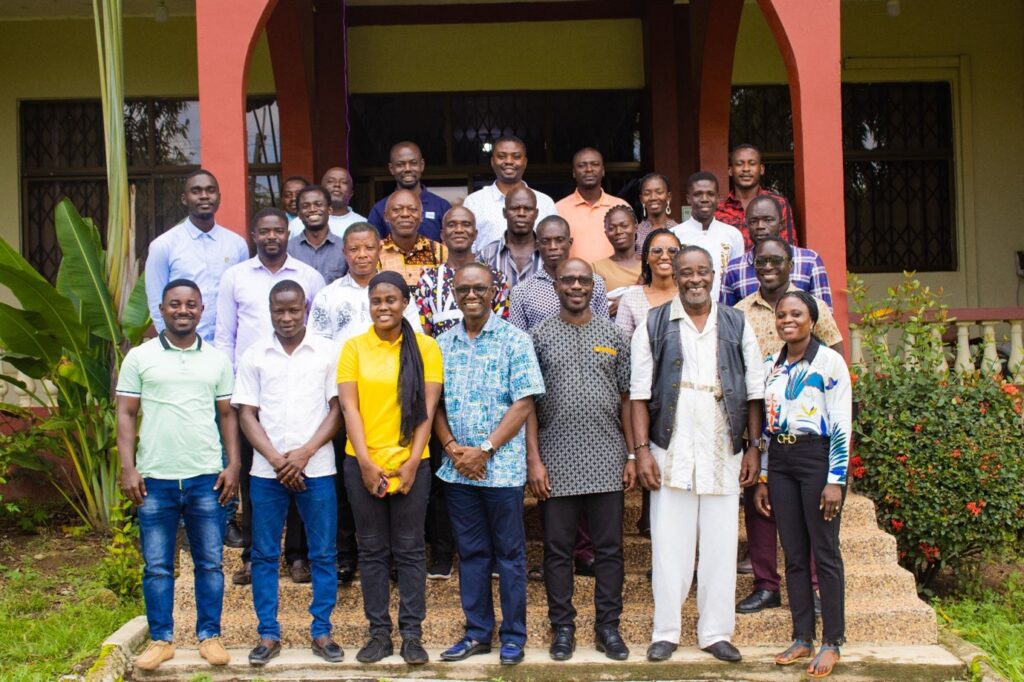
Ghanaian farmers are eager to embrace modern, climate-smart agricultural practices to improve their farming activities and overcome the challenges posed by climate change. This was evident at a recent training workshop organized by the CSIR-Crops Research Institute (CSIR-CRI) under the Scaling-up Climate-Resilient Rice Production in West Africa (RICOWAS) project. Participants expressed their hopes to gain new knowledge that would help them adapt to changing climate conditions, enhance productivity, and secure their livelihoods.
Agriculture in Ghana has faced increasing challenges due to climate change. Erratic weather patterns, rising temperatures, unpredictable rainfall, and the emergence of new pests and diseases threaten food security and disrupt the livelihoods of millions of farmers. Given that agriculture is a major pillar of Ghana’s economy, finding sustainable solutions to these problems is crucial.
The RICOWAS Project: Enhancing Climate Resilience
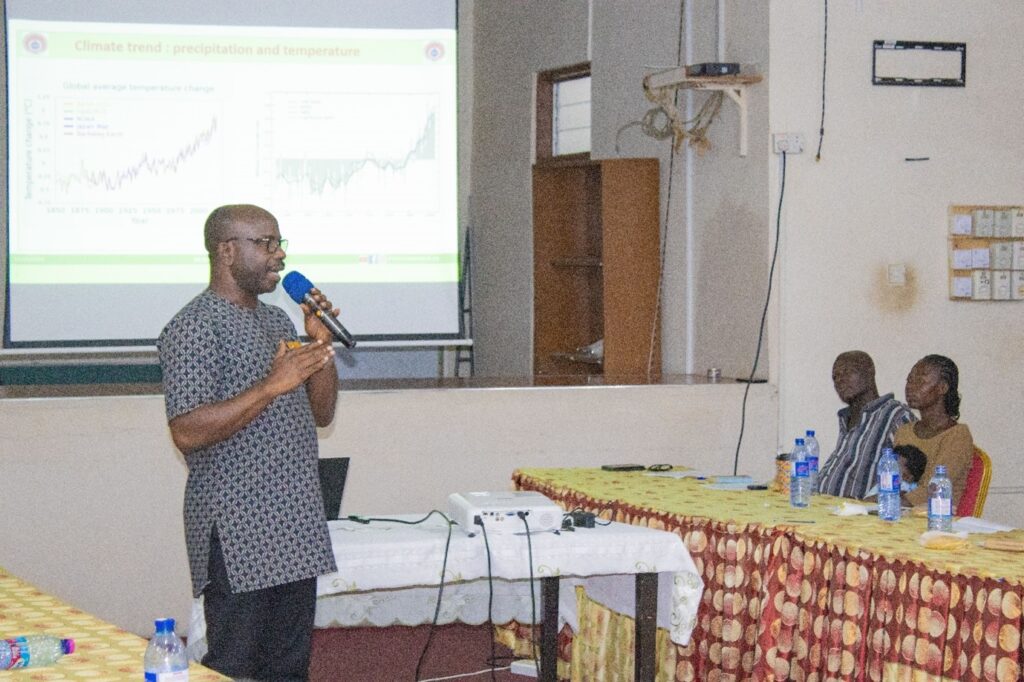
The workshop brought together a diverse group of stakeholders, including researchers, policymakers, agricultural extension officers, farmers, and agricultural directors from the Oti, Ashanti, Volta, and Western regions of Ghana. The shared goal was to promote good agricultural practices and Climate Smart Agriculture (CSA) that would enhance resilience in rice farming.
In his welcome address, Dr. Ernest Baafi, who was represented by Prof. Emmanuel Otoo, a Chief Research Scientist of the Institute, stressed the importance of reducing Ghana’s reliance on imported rice, which accounts for 60% of the annual consumption and costs the nation an estimated $500 million. “We want to be self-sufficient in rice production, but climate change is affecting most of our food crops. The launch of RICOWAS aims to address these climate-related challenges in agriculture,” he stated. Professor Otoo encouraged participants to actively share their knowledge and experiences to find solutions together.
Key Topics Covered in the Workshop
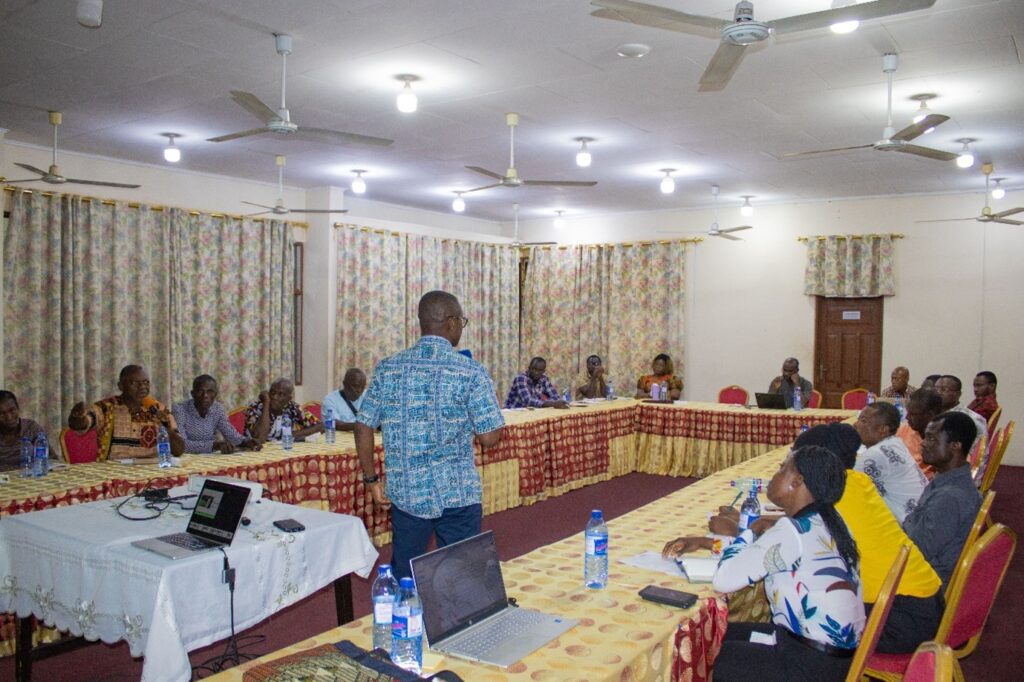
The training featured expert presentations and interactive sessions led by Dr. Stephen Yeboah, the project coordinator, Dr. Maxwell Darko Asante, a renowned rice breeder, Dr. Kwadwo Agbesi Keteku and Mr. William Kota both agronomists with the CSIR-Crops Research Institute. The following topics were covered:
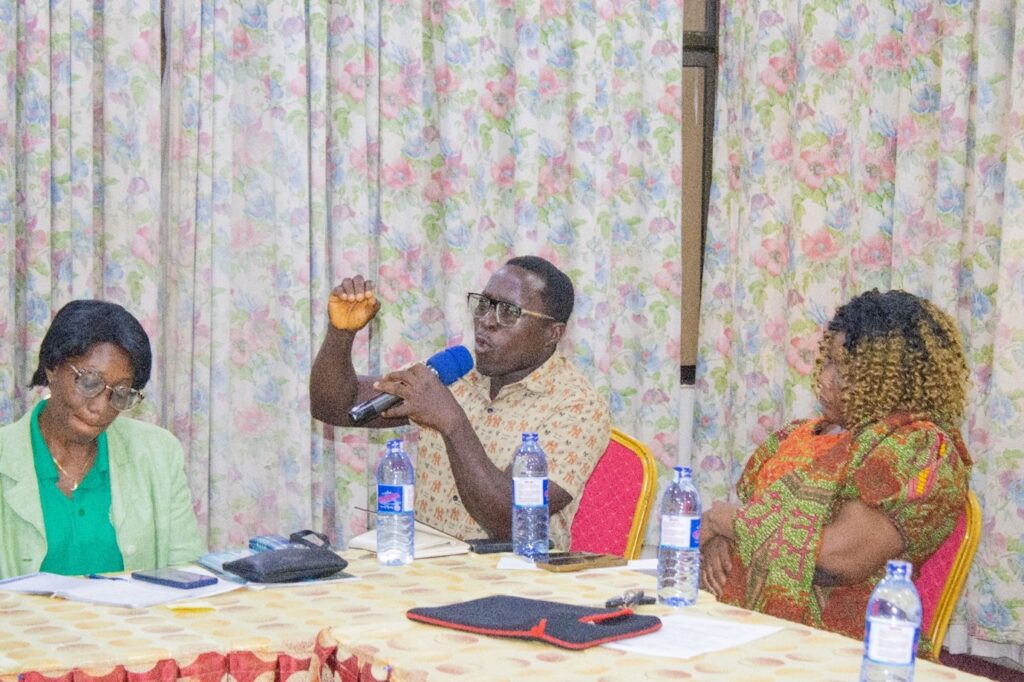
- Rice in Ghana, Current State and Future Projections: Participants were exposed to the consumption and production levels of rice in Ghana, as well as challenges, Government policies and private sector engagements towards achieving rice self sufficiency.
- Understanding Climate-Smart Agriculture and Climate Information Services: Participants learned the importance of using climate data to make informed decisions about farming activities, including how to access and interpret this information for better planning.
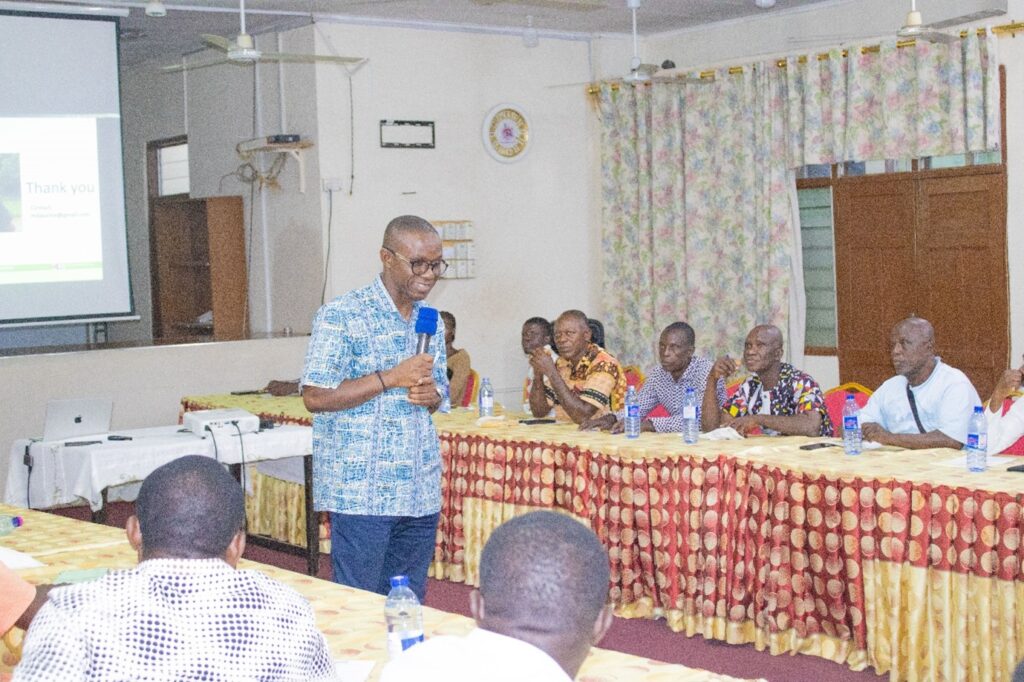
- Adaptation and Mitigation Strategies: Experts shared practical approaches to help farmers adapt to climate change, such as crop diversification, improved soil management, and water conservation techniques.
- Suitable Rice Varieties Under Drought and Flood Conditions: Dr. Maxwell Darko Asante, highlighted the benefits of adopting high-yielding, climate-smart rice varieties, emphasizing that these varieties, combined with good agricultural practices, could help Ghana achieve self-sufficiency in rice production.
- Overview and Introduction to the Principles of SRI: The workshop promoted practices like organic farming, no-till farming, and agroforestry, which enhance resilience while preserving the environment. Agronomist William Kota introduced participants to the SRI technology, which emphasizes low input, minimal fertilization, and compost application for better yields.
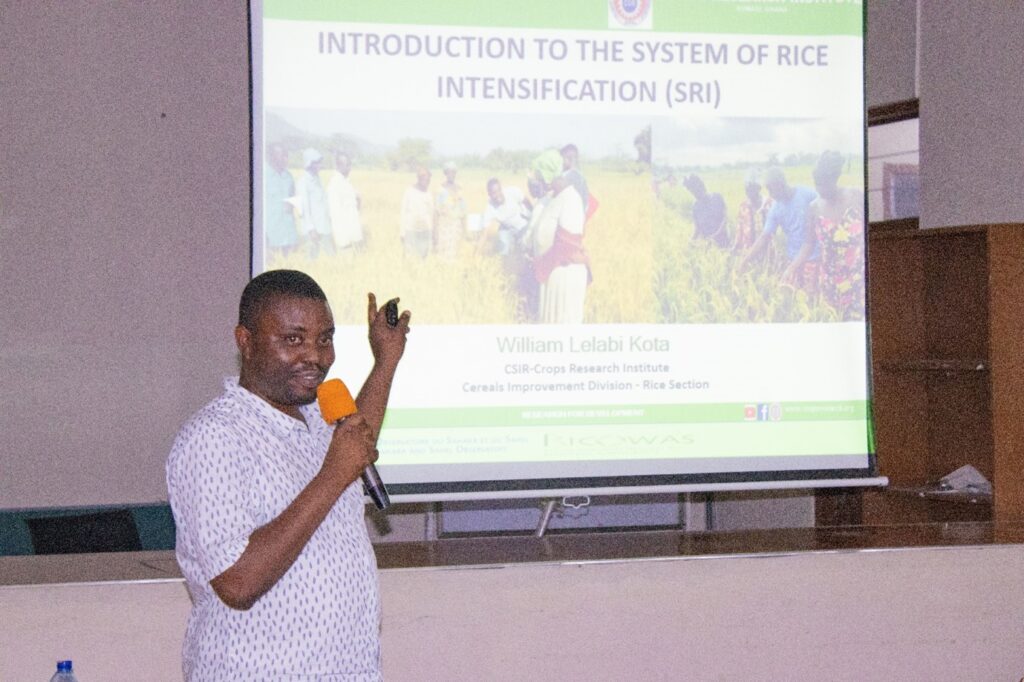
Hands-On Learning and Group Discussions
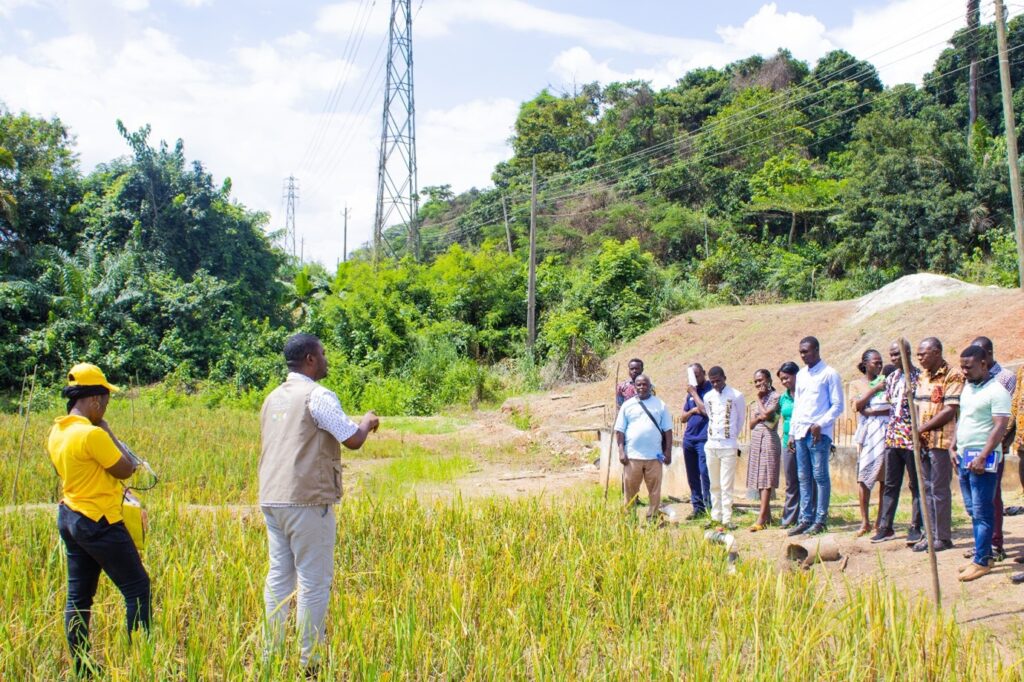
The workshop included field visits to CSIR-CRI’s rice research fields, where participants saw good agricultural practices and climate-smart techniques in action.
Ms. Fati Aruna, a member of the project team introduced the Alternate Wetting and Drying Irrigation Technology to participants and indicated how farmers could use the technology to determine the amount and timing of irrigating their rice fields.
Feedback from Participants
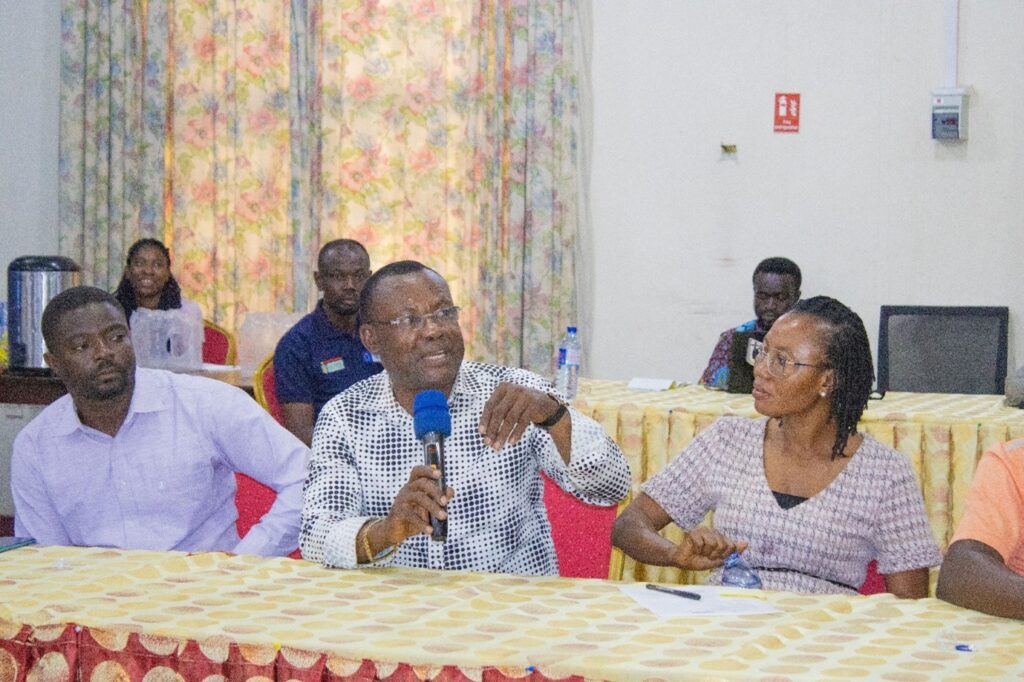
The training received positive feedback, with many participants expressing gratitude for the opportunity to learn new approaches to farming. Mr. Emmanuel Atika. an agricultural extension agent said, “While I had some prior knowledge about System of Rice Intensification (SRI) and climate change, this workshop has truly enlightened me. I’ll make sure I share all the information I have received from this workshop with my colleagues so that we can start incorporating the new knowledge into our setting.”
Gorni Cornelius , another participant, shared, “I thought I needed many acres in order to get higher yields in rice farming. But after this workshop, I have realized that just an acre of land can grant me several yields if I follow the methods taught here.”
A Step Towards Climate Resilience
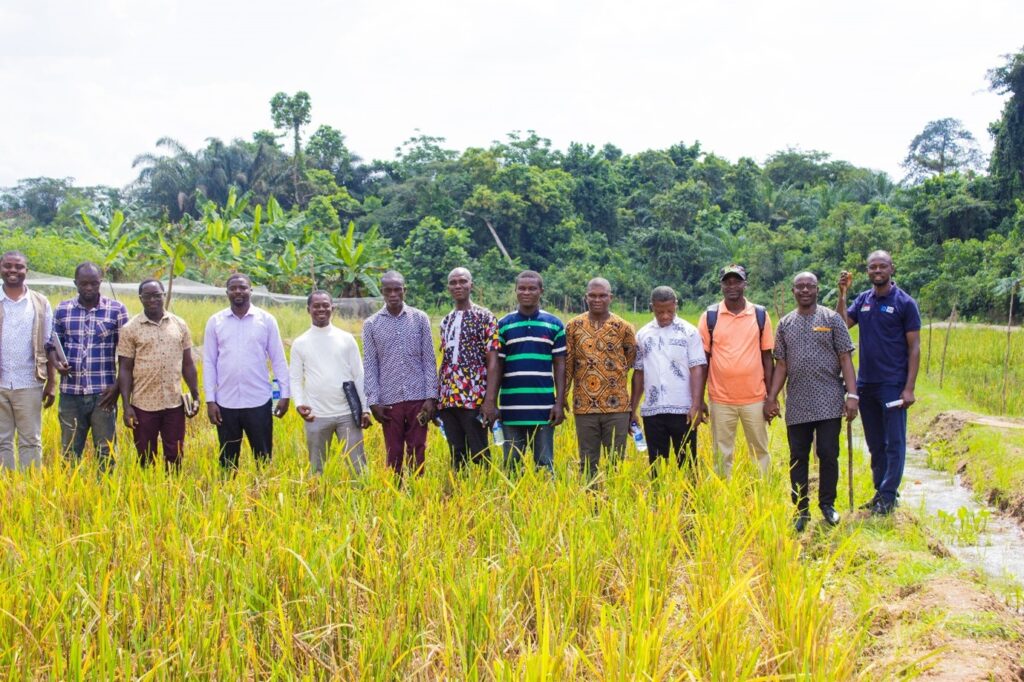
As the workshop concluded, participants left with new knowledge and a renewed commitment to adopting good agricultural practices and climate-smart agriculture. The CSIR-CRI and RICOWAS project leaders hope that these initiatives will inspire farmers to embrace sustainable practices, reducing the impact of climate change on agriculture and ensuring a more secure future for rice production in Ghana.
Authors: Bernard Sakyiamah, Dennis Gyasi Boakye, Enoch Bobie Agyemang

